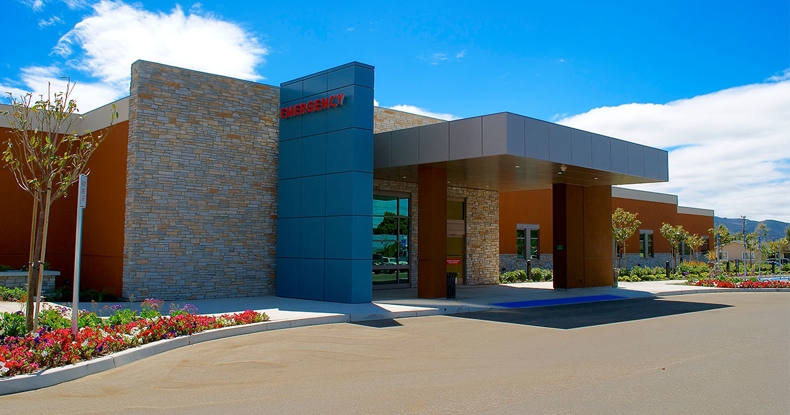The Best and Worst Foods To Eat When You Have IBS
- Category: Health & Wellness, Digestive Health
- Posted On:
- Written By: Lompoc Valley Medical Center

Paying close attention to your diet and the foods you eat remains critical when you have irritable bowel syndrome (IBS). Some foods can trigger your IBS symptoms to make you feel uncomfortable and affect your quality of life. On the other hand, certain foods can improve your digestion and help you find relief from IBS.
At Lompoc Valley Medical Center, we understand how important it is to control your symptoms if diagnosed with IBS. Here are the best and worst foods to eat if you have this condition and how to contact our medical team if you need additional treatment.
Worst Foods For IBS
You should avoid many of these foods if you have IBS or consume them in small amounts. Your doctor, nutritionist, or dietitian can give you more guidance on foods to avoid based on your symptoms.
Cow’s Milk and Dairy
Heavy cream, cheese, ice cream, and other dairy products contain lactose, a sugar in cow’s milk. Too much lactose can be difficult for your intestines to digest. High amounts of lactose can often lead to diarrhea and other IBS symptoms.
If dairy and cow’s milk products tend to trigger your symptoms, try replacing them with dairy-free alternatives. For example, drink coconut milk or almond milk instead of cow’s milk. Replace butter with olive oil or avocado oil. Eat soy-based ice cream instead of ice cream made with whole milk.
Cruciferous Vegetables
Cruciferous vegetables like broccoli and cauliflower contain a type of sugar called raffinose. Foods with raffinose will often stay in your gut and not digest until they are fermented by your stomach bacteria. However, if you lack high amounts of “good” gut bacteria, these foods can stay in your gut for a longer time. This can contribute to bloating, abdominal pain, and gas.
Cruciferous vegetables to avoid when you have IBS include:
- Broccoli
- Cauliflower
- Cabbage (including sauerkraut)
- Brussels sprouts
- Kale
- Bok choy
- Collard greens
- Radishes
- Arugula
- Watercress
If cruciferous veggies tend to worsen your IBS, eat higher amounts of other veggies, so you don’t miss out on vital nutrients. Green beans, zucchini, squash, celery, spinach, and sweet potatoes are healthy alternatives to cruciferous vegetables.
Beans
Beans are high in fiber and protein, which can usually help with IBS symptoms. However, they also contain compounds called oligosaccharides that can be more difficult for some people to digest.
Beans containing higher amounts of oligosaccharides than others include lentils, chickpeas (garbanzo beans), and soybeans. Other types of beans you may want to avoid with IBS include pinto, black, navy, white, kidney, and lima beans.
Some people suggest soaking dry beans overnight before cooking them to reduce IBS symptoms. You can also add one or two teaspoons of apple cider vinegar to the water when cooking beans. However, these are both anecdotal suggestions that may not work for everyone.
If you enjoy beans, try eating them in tiny amounts to see how your body reacts. If you can tolerate them without having IBS symptoms, you may be able to gradually increase your intake.
Fried Foods
Fried foods are usually cooked in high amounts of unhealthy oils, making them difficult for your intestines to digest and process. In some instances, foods that contain exceptionally high amounts of fat and sugar can move quickly through the body undigested. This may result in diarrhea and abdominal pain.
French fries, chicken, donuts, and egg rolls are some of the many fried foods that can worsen your IBS. If possible, omit all greasy, fried foods from your diet to avoid IBS symptoms. Since eating these foods can also cause obesity, high cholesterol, and diabetes, it’s best to avoid them.
Caffeine
Caffeine is a stimulant that speeds up your central nervous system. In some people with IBS, caffeinated drinks like coffee, tea, and energy drinks can cause diarrhea. This is especially likely if you drink these beverages on an empty stomach.
If caffeine wakes you up and boosts your energy, try other activities to help you feel more alert. Exercise first thing in the morning or go to bed earlier at night. Another thing you can try is substituting coffee with lower-caffeine alternatives like green or white teas.
Alcohol
Many alcoholic beverages contain high amounts of sugar that can cause IBS symptoms, including diarrhea. Most types of beer also contain gluten, which is a protein in wheat and rye that can worsen IBS. Drinking alcohol may cause dehydration to increase the risk of constipation.
Reduce your alcohol intake or focus on drinking plenty of water in between alcoholic drinks. You may also want to consult with your doctor regarding how much alcohol you can drink without worsening your IBS. Some people with IBS stick to drinking gluten-free beers or alcoholic beverages that do not contain added sugars.
Best Foods For IBS
These foods promote good digestion and may also improve your gut health to reduce or improve symptoms of IBS. Your doctor or nutritionist can help you develop a healthy meal plan that supports good digestive health if you live with IBS.
Fatty Fish
Tuna, mackerel, and salmon are some of the many types of fish that contain high amounts of omega-3 fatty acids. Omega-3s are great for your heart health and reduce inflammation linked to IBS.
Add more fatty fish to your diet. Fatty fish with omega-3s include:
- Tuna
- Sardines
- Salmon
- Mackerel
- Anchovies
- Trout
- Black cod
- Herring
- Whitefish
Probiotics
Probiotics are foods that can increase the amount of “good” bacteria in your gut. Good gut bacteria can improve your digestion and help you experience regular bowel movements. It can often help you avoid constipation and other symptoms of IBS.
Good sources of probiotics are fermented foods like kimchi, kefir, tempeh, kombucha, natto, miso, and sauerkraut. Yogurt is also a great probiotic and may be easier to find in your neighborhood grocery store than many other sources of probiotics. Try sticking to Greek yogurt, which contains more protein than other yogurts.
Lean Meats
Lean meats are high in protein, making them easier for your body to digest. Lean meats also won’t ferment in your gut and won’t contribute to gas.
In comparison, fatty and processed meats can cause inflammation and worsen your IBS symptoms. Avoid sausage, bacon, pepperoni, salami, and marbled cuts of meat.
Examples of lean meats you should add to your diet if you have IBS include white-meat chicken, white-meat turkey, and cuts of beef like sirloin and top round. Your doctor or nutritionist may also recommend eating pork, veal, duck, and fish.
Nuts
Most nuts are high in fiber, protein, and healthy fats, making them an ideal snack for people with IBS. Nuts can promote good digestion and prevent diarrhea and constipation. Nearly all nuts are great for IBS symptoms, especially walnuts, almonds, and macadamia nuts. Other nuts you can add to your diet include Brazil nuts, hazelnuts, pine nuts, and pecans.
Try snacking on nuts between meals or add them to salads. You can also eat nut butters with whole grains like oatmeal to benefit from better digestion and regular bowel movements.
Seeds
Like nuts, seeds are also good sources of protein, fiber, and omega-3s that can reduce your IBS symptoms. Chia, flax, pumpkin, and sunflower seeds are among the best seeds you can eat for IBS. Add these seeds to smoothies, oatmeal, salads, and rice bowls, or add them to homemade trail mix.
Quinoa also belongs to the seed family. Quinoa can be used as a healthy substitute for beans, cruciferous vegetables, breads, and other foods that may trigger IBS.
Whole Grains
Whole grains are high in fiber and can help move food more quickly through your digestive tract. Whole grains can also lower cholesterol and blood pressure to reduce your risk for obesity, diabetes, and heart disease.
Stick to eating whole grains like rice and oats, but avoid consuming whole-wheat flour like bread, pasta, and cereal products. Foods that contain whole-wheat flour may cause bloating, gas, and constipation.
Water
Drinking lots of water can help push waste through your intestines more efficiently to prevent or resolve constipation. It can also help you avoid dehydration, especially if you consume alcohol.
Try replacing beverages like soda, coffee, and fruit juices with water to improve your IBS. Most sodas and fruit juices contain high amounts of sugar that can increase inflammation and your risk for other health problems like obesity and diabetes. Carbonated beverages like seltzer can also upset your stomach and trigger IBS symptoms.
Treating IBS With Lompoc Valley Medical Center
Lompoc Valley Medical Center is home to a large team of doctors and healthcare specialists who can work with you to improve or resolve your IBS symptoms. Our dietitians and nutritionists can also help you develop a healthy meal plan to reduce your IBS symptoms.
Contact us today at (805) 737-3382 to learn more about our many healthcare services.






